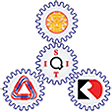How To Write A Book Using ChatGPT

Technology is reshaping how we approach traditional practices like writing. Thanks to advancements in artificial intelligence (AI), authors now have powerful tools at their disposal to make the writing process more efficient. While ChatGPT is at the forefront of AI-powered writing assistants, there are other tools and software available to authors, such as grammar checkers, plotting software, research tools, and platforms like YouBooks. Each offers unique benefits to writers. However, in this guide, we'll focus specifically on ChatGPT and its remarkable capabilities.
Understanding what ChatGPT can do is key. It's a cutting-edge language model trained on vast amounts of text data, which means it can generate text that sounds human-like based on the input it receives. By interacting with ChatGPT through prompts and questions, authors can come up with ideas, develop characters, outline plots, and even draft entire chapters.
Before diving in, it's important to set clear goals for your writing project. Whether you're working on a novel, memoir, or non-fiction book, defining the book's scope and direction will help you use ChatGPT more effectively and keep your writing focused.
Once you have your goals in place, you can start engaging with ChatGPT by providing prompts related to your book's theme, characters, or storyline. For example, if you're writing a science fiction novel, you can ask ChatGPT about futuristic technology, alien civilizations, or dystopian societies. This interaction can spark your creativity and help you generate new ideas for your book.
ChatGPT can also be a helpful tool when you're feeling stuck or uninspired. You can use it to brainstorm ideas, explore different narrative paths, and experiment with writing styles. ChatGPT's ability to generate diverse and contextually relevant responses can breathe new life into your writing process.
In addition to helping you generate ideas, ChatGPT can also assist you in refining your writing style and improving the overall quality of your prose. By analyzing the responses it generates and incorporating its suggestions, you can make your writing clearer, more coherent, and more eloquent. ChatGPT can even provide feedback on grammar, punctuation, and syntax, helping you polish your manuscript to a professional standard.
However, it's important to use ChatGPT with caution. While it's great at generating coherent and relevant text, it can sometimes produce nonsensical or irrelevant responses. You'll need to carefully evaluate the output it gives you and use your judgment to determine whether it's useful for your book.
Ultimately, ChatGPT should be seen as a tool to complement your creative process, not replace it. While it can help you generate ideas and streamline certain aspects of writing, the heart of writing lies in your unique voice, perspective, and vision. So, while ChatGPT can be a valuable ally in your writing journey, it's important to maintain your creative autonomy and not rely solely on it.
ChatGPT offers authors a powerful tool for writing books more efficiently and effectively. By leveraging its capabilities to generate ideas, overcome creative challenges, and refine your writing style, you can streamline your writing process and produce high-quality manuscripts. Just remember to approach ChatGPT with discernment and use it in conjunction with your own creative instincts. With careful planning and creative ingenuity, you can unlock the full potential of ChatGPT as a valuable ally in your authorial journey.















